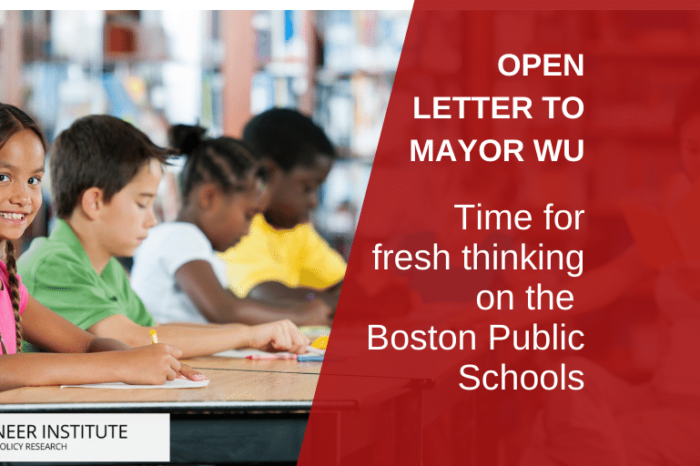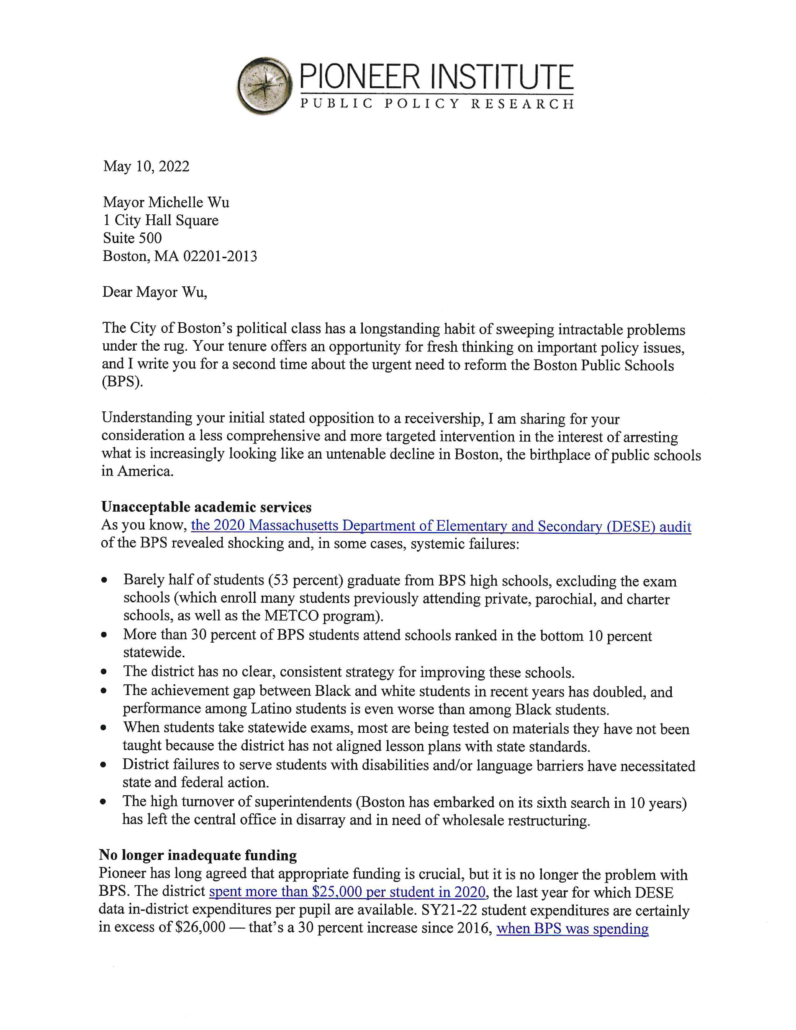Open Letter to Mayor Michelle Wu on the Boston Public Schools
“Barely half of students (53 percent) graduate from BPS high schools, excluding the exam schools,” Pioneer Institute Executive Director Jim Stergios underscores at the start of this Open Letter to Boston Mayor Michelle Wu.
That’s just one in a long litany of troubles within the Boston Public Schools, much of which is due to chaotic management and at times even willful misleading of the public.
In this letter, Pioneer recommends fresh thinking, and, specifically, a highly focused and time-limited intervention, in partnership with the state department of education.
Get Updates on Our Education Research
Related Content:












